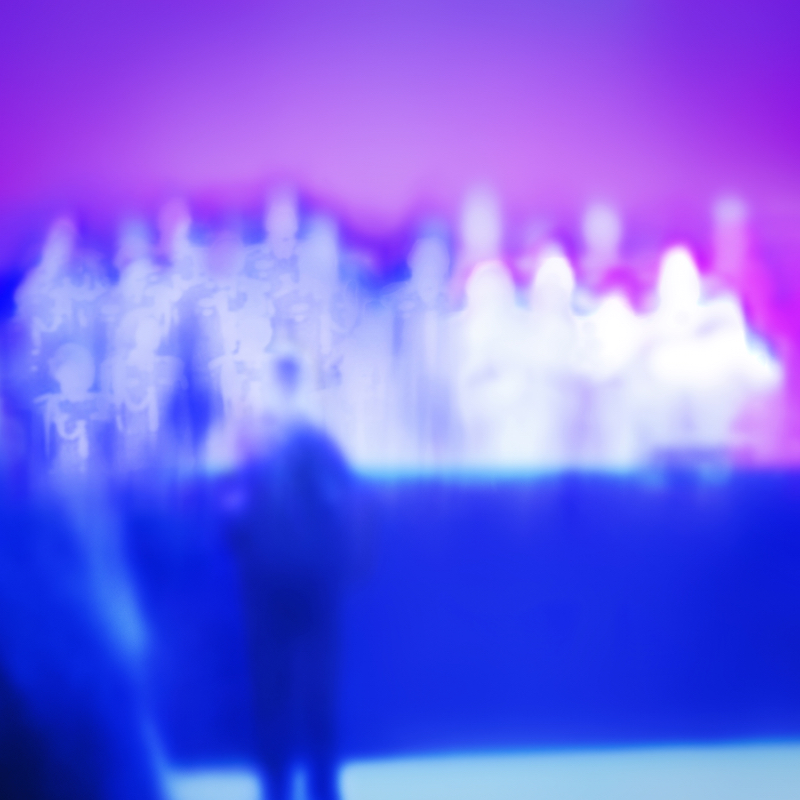
News
Progressive Labor Party Organizes Solidarity March With Harvard Yard Encampment

News
Encampment Protesters Briefly Raise 3 Palestinian Flags Over Harvard Yard

News
Mayor Wu Cancels Harvard Event After Affinity Groups Withdraw Over Emerson Encampment Police Response

News
Harvard Yard To Remain Indefinitely Closed Amid Encampment

News
HUPD Chief Says Harvard Yard Encampment is Peaceful, Defends Students’ Right to Protest
'Love Streams': A Fusion of Hypnagogic Beauty and Disorderly Experimentation
On “Love Streams,” Tim Hecker eschews the piercing bleakness of the widely acclaimed “Virgins” in favor of a looser choral soundscape that feels like a rough draft for a soon-to-be masterpiece. – 3.5 STARS
Fans of electronic noise music often shoulder an implacable burden. They are responsible not only for assuring their friends and loved ones that the “creepy static” blaring from their headphones is not the mark of a budding nihilist but also for articulating the artistic merit of a seemingly ineffable musical experience without responding with bombastic stupor. Tim Hecker, a pioneering electronic composer from Canada, has a solution to their woes that is faithful to their music’s steamrolling intensity: Drown out the skeptics with nihilistic bombast. In a press release via his new label, 4AD, Hecker described his upcoming album’s title, “Love Streams,” as “a riff on the ubiquity and nihilism of streaming of all forms of life” and claimed that its sound was inspired by his desire to create “liturgical aesthetics after ‘Yeezus.’” If Hecker’s blurbs seem incomprehensible, stay calm; one does not need a Ph.D. in urban noise to make sense of the surprisingly accessible “Love Streams.”
“Love Streams” marks the inception of a new sonic palette in Hecker’s extensive discography. Beginning with his 2001 release “Haunt Me, Haunt Me Do It Again,” Hecker worked to perfect an increasingly brooding “ambient drone” texture that relied on hypnotic distortions of organ and piano. With his seventh full-length album, “Virgins,” Hecker reached new heights of intensity with an innovative sleight of hand—he employed call and response composition techniques to create an immersive space that resembled being in the live-room with Hecker and the Icelandic collective Bedroom Community. While he continues to work with the group on “Love Streams” by incorporating ghostly vocal arrangements that echo Holly Herndon’s debut LP, “Platform,” Hecker has abandoned what he self-mockingly told The Fader was characteristic of his earlier works: “metal overload.”
The tone of “Love Streams” is superficially warm and vibrant, but the tensions at play demand a more nuanced explanation. Hecker juxtaposes fuzzy ultraviolet synths with natural woodwind acoustics, distorts voices that are full of human pang until they sound incorporeal, and constantly fluctuates between oneiric ambience and unsettling static. The sonic diversity of the album produces several stellar moments. “Obsidian Counterpoint” begins with a serenity anchored by flute and synth lines that is soon interrupted by a series of disturbing clangs that sound like organs being whacked by obsidian. The song fades out with a wave of drone until a distant choir starts to creep its way to the listener. The following track, “Music of the Air,” allows the choir to assert its presence as disparate voices attempt to harmonize amidst a drowning static ambience. On “Violet Monumental I,” the voices sound more urgent yet more alien than before, until they fully disappear by the time “Violet Monumental II” comes around and dramatic synth lines return to the foreground. “Castrati Stack” is perhaps the best and most chaotic moment of the album—thunderous static clashes with majestic choir vocals until the listener is transported to a dizzying realm that feels like a technocrat’s altar.
Despite its finer songs, “Love Streams” feels less refined and coherent than some of Hecker’s previous works. “Virgins,” for instance, was comparably experimental and chaotic, but Hecker carefully orchestrated the chaos with a near-cinematic vision that arrested the listener from start to finish. On “Love Streams,” tracks do not progress in a way that feels wholly organic; songs like “Bijie Dream” are multi-layered but seem too muddled to benefit from the added acoustics. The album gives the impression that Hecker is tinkering with new textures but has not yet determined what narrative he wants to tell with them. There is a consistent aesthetic to the album that may require fans of Hecker’s harrowing density to listen several times before accepting his new direction but may also attract new listeners who prefer a balance between dissonance and melody. Whether you are noise-head whose favorite book is Nietzche’s “Thus Spoke Zarathustra” or you are curious to see what electronic noise is all about, the formula is the same: Listen with headphones and listen loud, and you may just love the streams that Hecker sends through you.
“Love Streams” is out on 4/8 via 4AD.
Want to keep up with breaking news? Subscribe to our email newsletter.

